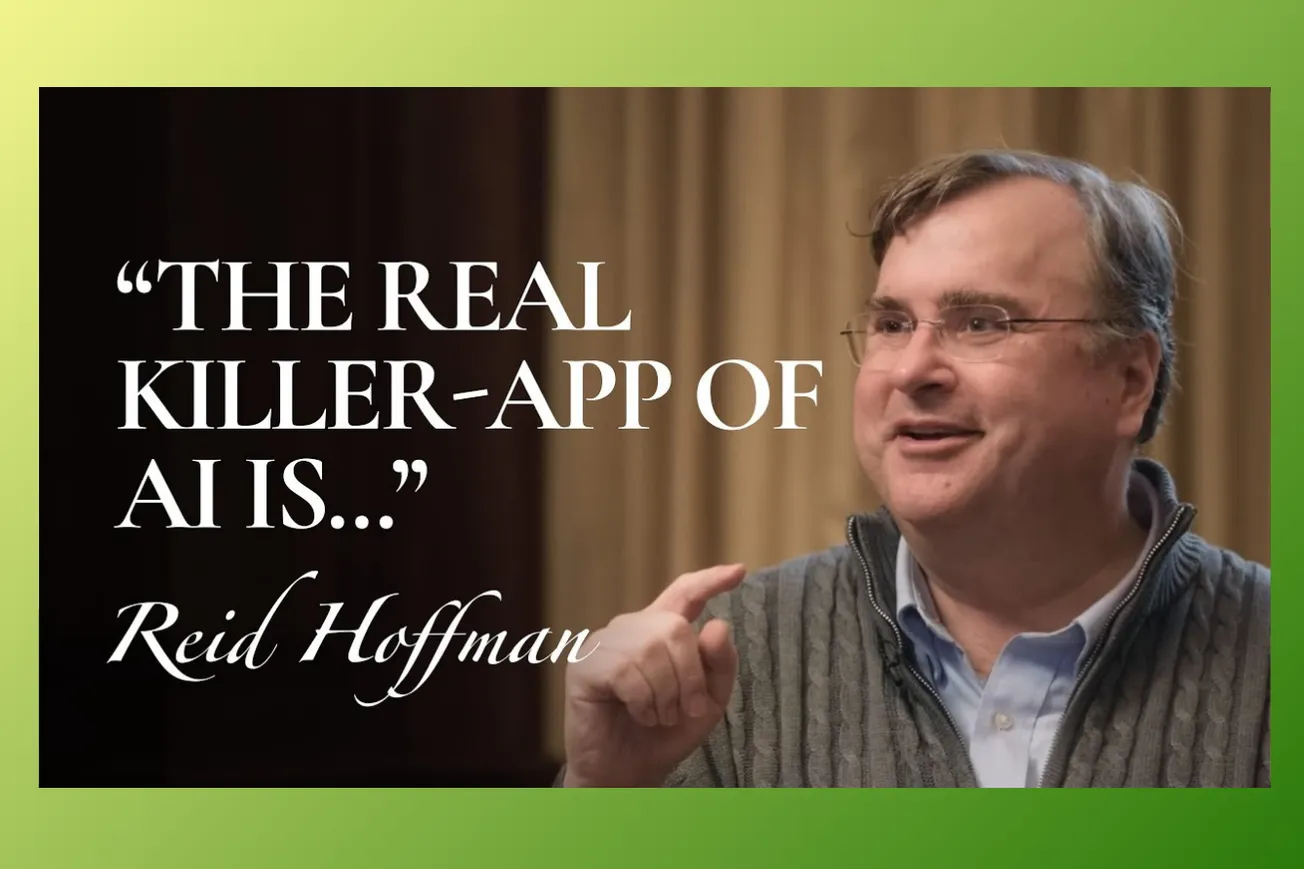Table of Contents
LinkedIn co-founder Reid Hoffman reveals why AI's biggest impact won't be chatbots, but social AI that mediates human relationships. From AI girlfriends to philosophical agents, discover how artificial intelligence will reshape friendship, romance, and human meaning in ways that make us more connected, not less.
Timeline Overview
00:00 Introduction Setting the stage for exploring AI's social revolution and its philosophical implications
01:51 AI Social How AI will create a "field of agents" mediating our social interactions rather than replacing them
16:58 Social Media & AI Examining social media's failures and how AI social platforms might avoid the same pitfalls
25:36 What Is Unique About Human Relationships Exploring the irreplaceable value of human recognition and the Hegelian master-slave dialectic
37:38 Plato's Phaedrus: AI & Books Drawing parallels between ancient concerns about writing and modern AI anxieties
48:04 How AI Changes Philosophy Discussing derivative epistemology and how AI might feed us wisdom we can't fully validate
55:41 Super Agency Hoffman's vision of enhanced human agency through technology rather than replacement by it
1:10:18 Implicit Regulations How companies self-regulate through benchmarks and network effects without formal oversight
1:13:23 How to Prepare for the AI Revolution Practical advice for individuals navigating the cognitive industrial revolution
Key Takeaways
AI Will Augment, Not Replace Human Relationships
- AI agents will form a "surrounding field" that mediates our social interactions
- Rather than becoming friends with AI, we'll use AI to enhance human friendships
- AI girlfriends should help users develop skills for real relationships
The Cognitive Industrial Revolution is Here
- AI represents a transformation as significant as the Industrial Revolution
- Transition periods are painful but necessary for human advancement
- Early adopters who learn to use AI tools effectively will have massive advantages
Social Media's Lessons for AI
- Current social media exploits human vices (wrath, vanity) for engagement
- AI social platforms should "sublimate" rather than exploit these tendencies
- Success comes from designing for long-term user value, not addiction
Human Agency Will Expand, Not Diminish
- Technology has always made humans "more human" throughout history
- Agency includes both individual capabilities and collective social power
- The key is embracing technological change rather than resisting it
Philosophy Becomes Experimental Science
- AI forces us to test previously theoretical questions about consciousness and recognition
- We may develop new forms of "derivative epistemology" - trusting AI insights we can't validate
- Human uniqueness will be discovered through interaction, not assumed in advance
Practical Preparation Strategies
- Start using AI tools extensively now - most people dramatically underutilize current capabilities
- Focus on learning to collaborate with AI rather than competing against it
- Develop skills in prompting, questioning, and AI-human collaboration
AI Social: Beyond Chatbots
Reid Hoffman argues that AI's "killer app" won't be individual chatbots but social AI that mediates human relationships. Instead of replacing human connections, AI will create a "surrounding field of agents" that enhance our social interactions - helping us communicate better, resolve conflicts, and deepen relationships.
His company Inflection built Pi, an AI trained for emotional intelligence, specifically designed to redirect users toward human relationships rather than replacing them. When users say "you're my best friend," Pi responds: "I'm your AI companion. Let's talk about your friends. Have you seen them recently?"
Learning from Social Media's Failures
Hoffman acknowledges social media's problems while defending his creation, LinkedIn. The key difference: LinkedIn was designed as "time-saving not time-spending" - optimizing for user productivity rather than addiction.
He identifies a systemic issue: social platforms succeed by exploiting the "seven deadly sins" (wrath, vanity, greed). The solution isn't to eliminate these human tendencies but to "sublimate" them into positive behaviors that help users become their better selves.
The Philosophy of Human Connection
Drawing on Hegel's master-slave dialectic, Hoffman explores what makes human recognition unique. We grow through challenging interactions with other independent minds. While AI might eventually provide valuable recognition, the collaborative journey of human consciousness remains irreplaceable.
This connects to his definition of friendship: "making each other better." AI relationships might achieve this in new ways, but they'll require developing new social vocabularies and expectations.
Technology Makes Us More Human
Referencing Plato's Phaedrus (where Socrates worried writing would destroy memory), Hoffman argues each technological advance faces similar fears. Yet "homo technicus" - humans as toolmakers - become more human through technology, not less.
Books didn't destroy human capability; they enabled Plato himself. Similarly, AI won't replace human thinking but will create new forms of collaboration and understanding.
Super Agency: The Path Forward
Hoffman's concept of "super agency" means technology expands rather than diminishes human agency - our ability to shape our world and navigate our path through it. Agency operates at individual, group, and societal levels.
The key insight: whether we're "dragged kicking and screaming" or embrace technological change determines our experience. Like getting in an Uber, we can approach AI transformation with dread or with ownership of our agency.
What's Next?
For individuals, Hoffman emphasizes immediate experimentation with current AI tools. Most people use perhaps 5% of available capabilities. He demonstrates taking photos of unfamiliar objects to get usage instructions, or asking AI to explain complex papers at different educational levels.
The transition will be painful - a "cognitive industrial revolution" - but those who learn to collaborate effectively with AI will gain enormous advantages. Jobs will change rather than disappear, moving toward human-AI centaur teams.





